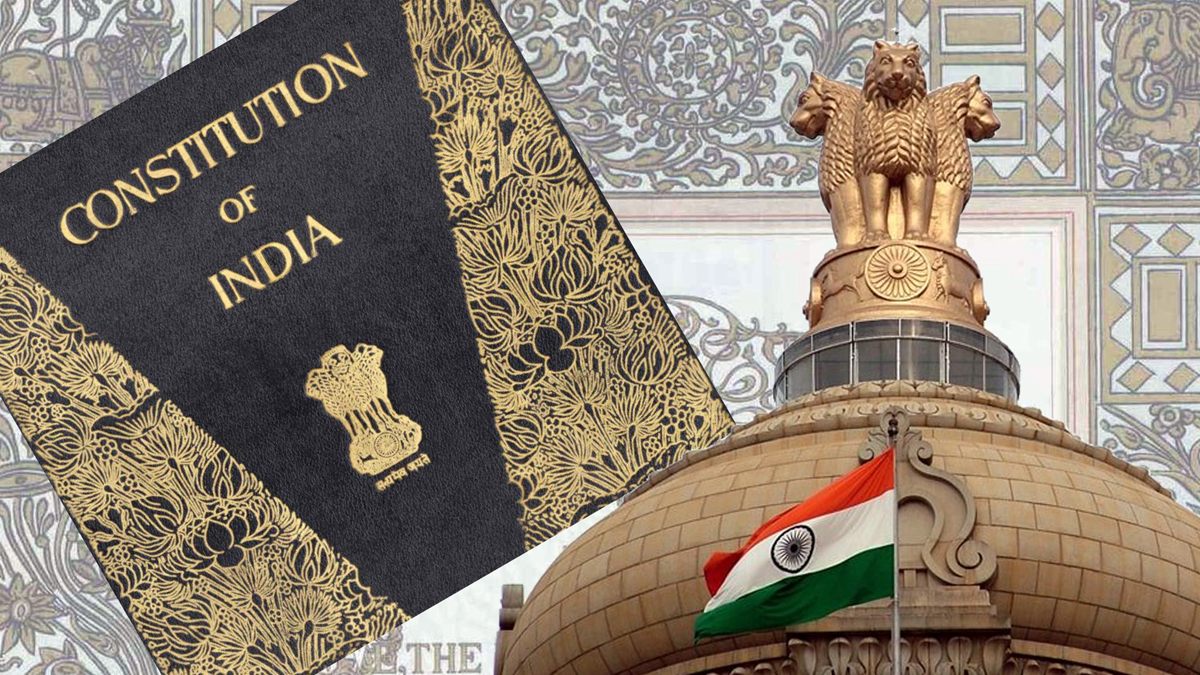A constitution is a fundamental document that lays down the basic framework and principles for the governance of a country. In the case of India, having a constitution is essential for several reasons:
- Establishing Fundamental Rights: The Indian Constitution guarantees certain fundamental rights to its citizens, such as the right to equality, freedom of speech and expression, right to life and personal liberty, etc. These rights ensure the protection and well-being of individuals and create a democratic and inclusive society.
- Ensuring Rule of Law: The constitution provides a set of laws and principles that govern the functioning of the government, institutions, and individuals. It establishes the rule of law, ensuring that all citizens are subject to the same set of laws and that no one is above the law, including the government itself.
- Defining the Structure of Government: The Constitution defines the structure and powers of the government, including the separation of powers among the legislature, executive, and judiciary. It establishes the framework for governance and ensures a system of checks and balances to prevent the abuse of power.
- Protecting the Rights of Minorities: India is a diverse country with various religions, languages, and cultures. The constitution safeguards the rights of minority communities and ensures their protection from discrimination, ensuring a pluralistic and inclusive society.
- Facilitating Social and Economic Development: The constitution outlines the principles and directives for social and economic development in India. It promotes social justice, equality, and the welfare of its citizens through various provisions and schemes.
- Resolving Conflicts and Disputes: The constitution provides a mechanism for resolving conflicts and disputes among different levels of government, between the centre and the states, and among individuals and institutions. It establishes the courts and the judiciary to interpret and enforce the Constitution, ensuring justice and fairness.
- Safeguarding Democracy: The constitution upholds democratic principles and ensures free and fair elections, peaceful transitions of power, and the participation of citizens in the decision-making process. It provides a framework for democratic governance and political stability.
In summary, the constitution plays a crucial role in India by protecting fundamental rights, establishing the rule of law, defining the structure of government, promoting social and economic development, resolving conflicts, safeguarding democracy, and maintaining harmony and unity among its diverse population.
The Indian Constitution is the supreme law of India. It was adopted on 26th November 1949 and came into effect on 26th January 1950, replacing the Government of India Act (1935). The constitution lays down the framework for the governance of India, defining citizens’ rights and duties, the government’s structure and powers, and the functioning of various institutions.
The Indian Constitution
Some key features of the Indian Constitution:
- Lengthy and Detailed: The Indian Constitution is one of the world’s lengthiest and most detailed constitutions. It consists of a Preamble and 470 Articles, divided into 25 Parts, along with 12 Schedules and 5 Appendices. The extensive nature of the constitution reflects its comprehensive approach towards governing the country.
- Sovereign, Socialist, Secular, and Democratic: The Preamble of the Indian Constitution declares India to be a sovereign, socialist, secular, and democratic republic. These principles form the foundation of the country and guide its governance.
- Fundamental Rights: The Indian Constitution guarantees fundamental rights to its citizens, such as the right to equality, freedom of speech and expression, right to life and personal liberty, and right to constitutional remedies. These rights ensure the protection and well-being of individuals and promote social justice and equality.
- Directive Principles of State Policy: The constitution includes Directive Principles of State Policy, which provide guidelines for the government to formulate and implement policies that promote the welfare of the people, social justice, economic development, and the protection of weaker sections of society.
- Federal System with Unitary Bias: India follows a federal system of government, where powers are divided between the central government and the states. However, the constitution has certain unitary features that give the central government more authority, especially during emergencies.
- Independent Judiciary: The constitution establishes an independent judiciary with the Supreme Court at the apex. The judiciary acts as the guardian of the constitution, interpreting its provisions, protecting the fundamental rights of citizens, and resolving disputes between the centre and the states.
- Parliamentary Form of Government: India has a parliamentary form of government, with a President as the head of state and a Prime Minister as the head of government. The Constitution outlines the structure, powers, and functions of the executive, legislature, and judiciary.
- Amendment Procedure: The constitution provides for its amendment to adapt to changing circumstances and needs. The Parliament can make amendments through a prescribed procedure, ensuring a balance between stability and flexibility.
- Fundamental Duties: The constitution also includes fundamental duties for citizens, which emphasize the importance of respecting the ideals and institutions of the country, promoting harmony, and protecting the integrity of the nation.
The Indian Constitution has played a vital role in providing a stable framework for governance, protecting the rights of citizens, promoting social justice, and maintaining the unity and diversity of the country. It serves as the cornerstone of India’s democracy and guides the nation towards progress and development.



